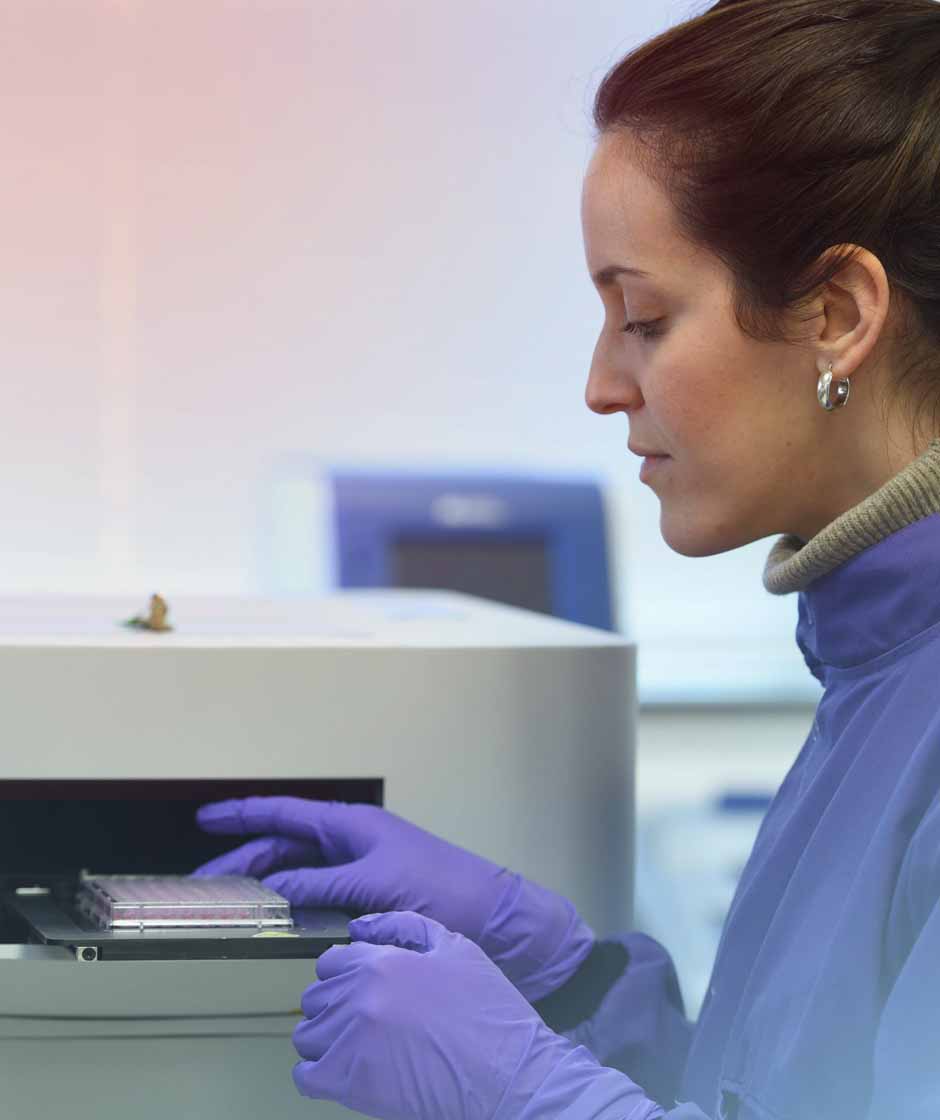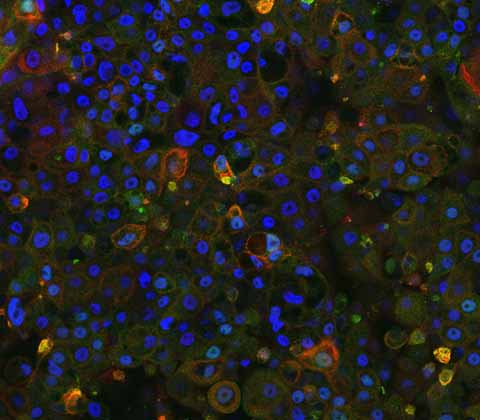Disease Modeling Services
We offer both CRISPR-derived disease models, in which specific mutations have been introduced into our wild-type iPSCs and patient-derived disease models. Here, iPSCs are generated from patients harbouring specific mutations which are then differentiated into Hepatocytes.
DefiniGEN is ready to help
When you can't find the right iPSC line or iPSC donor material to create a cell-based model for a specific disease, DefiniGEN is ready to help.
Through bespoke CRISPR disease modeling, DefiniGEN’s induced pluripotent stem cell (iPSC) UltiDIFF platform enables the generation of high-quality wild-type and disease cell models that meet your specific needs. Through our UltiDIFF platform we have successfully produced mature cells which recapitulate a range of disease phenotypes that are suitable for preclinical efficacy and toxicology investigations.
We can use CRISPR gene editing to generate bespoke cell models that fit your needs, our services include:
Knock-in and Knock-out gene editing services
iPSC differentiation services
Repair of causative mutations in patient-derived lines
Want to do the differentiation yourself? We can perform the CRISPR genome editing and send you the bespoke iPSCs

Advantages of working with DefiniGEN
Rapid turnaround time
Our optimized protocols and standardized workflows ensure fast, efficient project completion.
High success rates
Our deep expertise handling challenging iPSC lines easily translates into successful CRISPR editing of iPSCs.
Collaborative project management
We conduct every project with complete transparency and in close collaboration with client teams to ensure we deliver what you need.
Our Disease Modeling workflow
Our custom cell model service is an integrated, end-to-end package that includes iPSC line or donor selection, the complete CRISPR editing workflow, and differentiation into the target cell type.
From frameshift knock-out mutations to complex knock-in genetic modifications, our dedicated experts will work collaboratively with you to design and build the most relevant cell-based model for your project.
Our workflow consists of footprint-free CRISPR/Cas9-mediated editing, single-cell cloning of the edited population and characterization of expanded clonal cell lines to identify positive clones. The edited iPSC cells maintain pluripotency and have normal, stable karyotypes, which are crucial for testing downstream applications such as directed differentiation.
iPSC reprogramming
You can select any of our comprehensively characterized in-house iPSC lines, you can also supply your own iPSC lines, or provide material derived from patient donors.
Gene Editing
We work in collaboration with you to design single guide RNAs (sgRNAs) and use a footprint-free CRISPR/Cas9 system to edit the iPSCs. We optimize transfection conditions before full-scale editing, before screening the edited populations, seeding single cells, Sanger sequencing the clones. You then select which clones to use going forward.
iPSC Differentiation
We use our world-leading UltiDIFF platform to differentiate your edited iPSCs. We've transformed the "difficult" into the "routine" and have successfully differentiated multiple iPSC lines into a range of target cell types that fully recapitulate the mature cell phenotype.
Pre-built Disease Models
When modeling any pathology using an iPSC differentiation platform, it is vital to confirm that the metabolic pathways implicated are expressed and active in the wild-type cells.
DefiniGEN's hepatocytes are mature, predictive, and display all relevant biological pathways pertinent for our disease models.
You can learn more about our pre-built disease models here:








